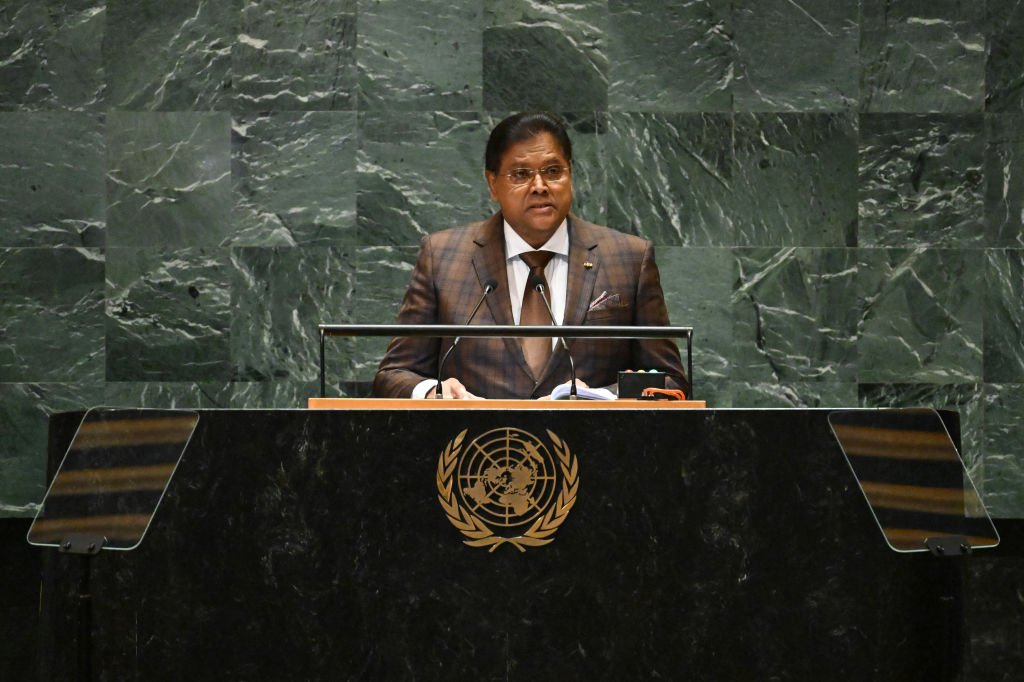Expression
Minister sues news outlet
On 16th August 2024, Minister of Public Works Riad Nurmohamed filed a lawsuit against Starnieuws and its editor-in-chief, Nita Ramcharan, alleging that a column authored by Ramcharan contained defamatory statements that harmed his reputation. Nurmohamed has demanded a public apology and a retraction of the statements across multiple media outlets. If his demands are not met, he requests a penalty of SRD 300,000 (USD 8,500) per day.
The column accused Minister Nurmohamed of leaking confidential information regarding the tender process for the “Rehabilitation of the Van 't Hogerhuysstraat and Slangenhoutstraat” project, financed by the Inter-American Development Bank (IDB). Minister Nurmohamed contended that these allegations were unfounded and damaging to his personal and professional standing.
On 19th August 2024, the Surinamese Association of Journalists (SVJ) expressed concern over the implications of this lawsuit for press freedom in Suriname. The SVJ urged its members and the broader journalistic community to support Starnieuws and uphold the principles of free expression and press freedom.
Initially, the State of Suriname joined the lawsuit as a co-plaintiff. However, on 27th August 2024, the state withdrew from the case, with the Attorney General stating that “the State of Suriname has no interest or involvement in this legal action.” This decision left Minister Nurmohamed to pursue the lawsuit independently, both in his personal capacity and as Minister of Public Works.
According to local journalists, the case of Minister Nurmohamed of Public Works vs Starnieuws is being viewed as a crucial test for press freedom, with potential repercussions for how journalists criticise public officials. Nurmohamed has maintained that Starnieuws should be penalised for what he views as defamatory content, but Starnieuws and its supporters argued that the article is protected by freedom of expression. This legal battle could set a dangerous precedent for future interactions between the press and public officials in Suriname.
Journalist faces backlash for exposing conditions at Suriname’s Marwina Hospital
In late June 2024, Health Minister Amar Ramadhin criticised journalist Jerrel Harderwijk from DTV-Express over his coverage of conditions at Marwina Hospital, located in eastern Suriname near the French Guiana border. Minister Ramadhin argued that Harderwijk’s report breached both patient privacy and hospital protocol, claiming that people had been interviewed without proper consent and that Harderwijk himself lacked permission to access the hospital grounds. Ramadhin asserted that these actions violated international regulations.
In response, Harderwijk refuted the allegations, maintaining that he acted responsibly and aimed to reveal the hospital’s neglected state, which contradicted the minister's public assurances of its operational status. Following these events, Minister Ramadhin lodged a formal complaint with the Association of Surinamese Journalists (ASJ). The ASJ subsequently mediated, leading to a mutual understanding between the parties.
Press freedom soars amid concerns over severe defamation penalties
Suriname has improved in press freedom, advancing from 48th to 28th position in the Reporters Without Borders (RSF) World Press Freedom Index. This progress reflects a diverse media landscape and a relatively low frequency of attacks on journalists, fostering a more open media environment. However, RSF raised concerns about Suriname’s defamation laws, which impose severe penalties, including up to seven years’ imprisonment, for those found guilty of “public expression of hate” toward the government. Such stringent laws could suppress freedom of expression and potentially discourage journalists from covering sensitive issues of public interest.
Peaceful Assembly
Between July and September 2024, Suriname experienced multiple protest actions across different regions, as citizens expressed dissatisfaction with government responses to socioeconomic issues. The protests stem from frustrations over unmet governmental promises, economic hardships and insufficient public services. Key regions affected include Nickerie, Albina and Nieuw-Koffiekamp, where citizens, farmers and local workers mobilised in response to various grievances.
Farmer protests in Nickerie
- On 30th July, farmers in Nickerie gathered at the commissariat building to express grievances over delayed compensation. Their frustration arises from unfulfilled commitments made by President Chan Santokhi, who, four months ago, pledged to support farmers affected by recent droughts and a severe rat infestation. The protests escalated as farmers demanded immediate action, underscoring that they had registered for compensation on two separate occasions, yet had received no financial support. Tensions heightened when an altercation with authorities led to the detention of one protester. Following this incident, the protesters relocated from the commissariat to the police station, demanding the release of the detained farmer. This escalation has resulted in a standoff with the police.
- On 1st August, the protests continued, with farmers demanding immediate answers regarding the delayed subsidies. Minister of Agriculture Prahlad Sewdien claimed that most protesters were not actual farmers, suggesting there was a scheme behind the protests.
- On 2nd and 5th August, protests escalated as farmers began to barricade roads, including the Henar Bridge, to make their demands more visible. Tensions rose, and local Members of Parliament faced backlash when attempting to address the protesters. Protesters rejected a government offer to compensate them for their losses, stating it was insufficient. Despite ongoing negotiations, tensions remained high, and calls for additional government support persisted.
Residents block roads in protest over basic needs and job loss
- On 9th September, protest action escalated in Albina in the east of Suriname. Residents completely blocked the road near the Marwina Hospital. They were protesting the poor electricity and water supply in the region. Initially, pedestrians were allowed to pass, but the protesters had later fully closed the barricade, increasing tensions, especially for those needing to cross the border to French Guiana. The protesters vowed to maintain the blockade until the government takes action to address their demands.
- On 18th September, residents of Nieuw-Koffiekamp, a Marroon village in the south of Suriname, set up a blockade on the road to the village and the neighbouring Zijin Rosebel Gold mines. They erected barricades using logs and other materials. The protest stems from frustrations over job loss and the company’s refusal to rehire them. Despite attempts, the police were unable to fully remove the barricades, and tensions remain high as the residents demand solutions.
